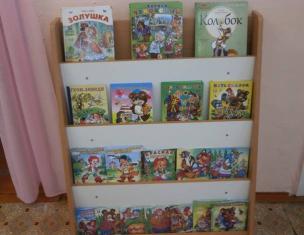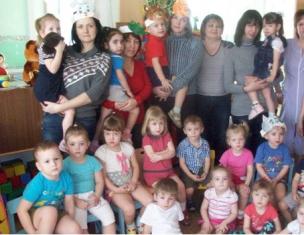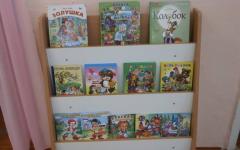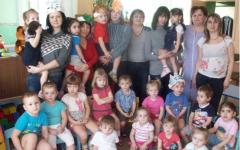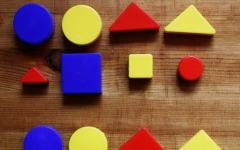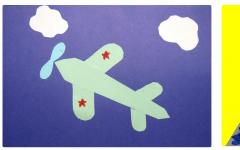in the harmonious development of the child
The first years of the child's life is time, When basic skills and knowledge are laid,without which the further harmonious personality development is impossible.
During this period, the main psychological processes are developing, such as memory, perception, thinking, speech. At this stage it is extremely important to provide a child with the opportunity to comprehensively know the surrounding world and introduce him to the society in which he has to live and develop.
Education of children in the family and in kindergarten
Education of children is one of the main tasks of society. 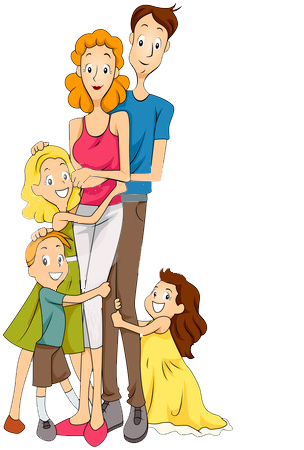 The leading place in this matter is the family. Through education in the family of the child, the rules and norms of behavior adopted in society. In the first years of life, the family is the main educator, this is the main habitat of the child. He is understood there and accept what it is. In the family, the child learns the world around him, its ideas about the relationship between people are.
The leading place in this matter is the family. Through education in the family of the child, the rules and norms of behavior adopted in society. In the first years of life, the family is the main educator, this is the main habitat of the child. He is understood there and accept what it is. In the family, the child learns the world around him, its ideas about the relationship between people are.
Upon reaching the child of two or three years, parents prefer to give a child to kindergarten, as they believe that in communication with other children, the child is comprehensively developing, there is a preparation for school. Educators are the first teachers for children. They convey their knowledge and skills to their pupils. Not all parents possess the necessary knowledge. Preschoolers are distinguished by high emotionality, impressionability. With proper education in the family and at home they have such feelings as sympathy, love is not only close, but also to a wider circle of people.
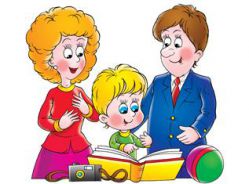 Kindergarten frees the parents time to work, helps parents to raise children. One of the main tasks of kindergarten is to teach children to live in the team. The child receives the experience of relationships with other people, he must learn to take care of himself. The interaction of kindergarten and family is an important direction in the development of the child's personality. It is possible if each side shows activity and responsibility on the whole stay of the child in kindergarten: from receipt and before issue to school. The education of children with parents with parents is a joint identification of the achievements and difficulties of the child, creating a plan of activity and its implementation for the successful education and development of the child.
Kindergarten frees the parents time to work, helps parents to raise children. One of the main tasks of kindergarten is to teach children to live in the team. The child receives the experience of relationships with other people, he must learn to take care of himself. The interaction of kindergarten and family is an important direction in the development of the child's personality. It is possible if each side shows activity and responsibility on the whole stay of the child in kindergarten: from receipt and before issue to school. The education of children with parents with parents is a joint identification of the achievements and difficulties of the child, creating a plan of activity and its implementation for the successful education and development of the child.
The main tasks of pre-school education
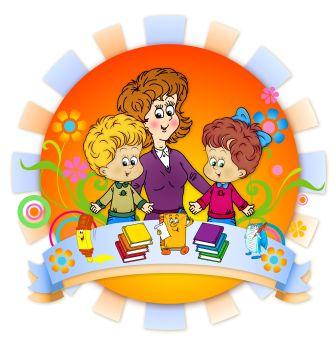 Kindergarten is the second after the family Social Institute in the life of the child. Parenting in kindergarten It is directed primarily to teach children to live in society, to form the necessary skills to communicate and interact with the surrounding people. For feedback, communication with peers is the necessary component of harmonious development, because thanks to the developed effect of imitation learning in the team makes it much faster to master new knowledge and skills. Many parents scares the child's adaptation process in kindergarten. However, the competent behavior of educators allows you to smooth this process and hold it most painless, in contrast to the difficulties that are waiting for "home" children in the school collective.
Kindergarten is the second after the family Social Institute in the life of the child. Parenting in kindergarten It is directed primarily to teach children to live in society, to form the necessary skills to communicate and interact with the surrounding people. For feedback, communication with peers is the necessary component of harmonious development, because thanks to the developed effect of imitation learning in the team makes it much faster to master new knowledge and skills. Many parents scares the child's adaptation process in kindergarten. However, the competent behavior of educators allows you to smooth this process and hold it most painless, in contrast to the difficulties that are waiting for "home" children in the school collective.
IN tasks of pre-school education in kindergarten Learning is based on basic laws of communication: the child learns to search for a compromise between his desires and the interests of others, to defend its point of view and at the same time be able to restrain itself when resolving disputes. Under the supervision of the teacher, children acquire the first skills of independence, which lay the foundation of the child's self-organization at home and, in the future, at school. It is especially valuable that in the children's team all these skills are formed in the most natural way - during the game and in the process of communicating with other children.
Of course, the kindergarten education does not at least detract from the values \u200b\u200bof home education. However, given that more than one child is rarely born in modern families, the most affordable source of communication and development in the team remains the kindergarten.
In addition to acquaintance with the society, the goals of education in kindergarten are mental, physical, moral and aesthetic development of the child. All this is the necessary components for the formation of a full-fledged self-sufficient personality. The task of the educator is to offer a wide variety of classes that will allow to be implemented to each pupil in the group. It can be drawing, designing and creating appliques, music, physical education or gymnastics, as well as, additionally, learning a foreign language, choreography and much more. Thus, conditions are created for the development of five major personal potentials - cognitive, communicative, value, artistic and physical.
Features of raising children in kindergarten
Raising feedback is very different from subsequent education at school. Each age has its own laws by which the child develops. The main task of kindergarten educators is to give and develop all the skills necessary for the future life. Therefore, such types of classes are selected that each kid can approach. There are many varieties of information feeding, these are role-playing games, and practical tasks, and explanation of the material as an educator. But it combines their one goal - the child must take an active part, and not strictly (sometimes thoughtless) to perform instructions.Application of various methods of education in kindergarten Allows you to achieve the desired result and take into account the individual features of children in the group.
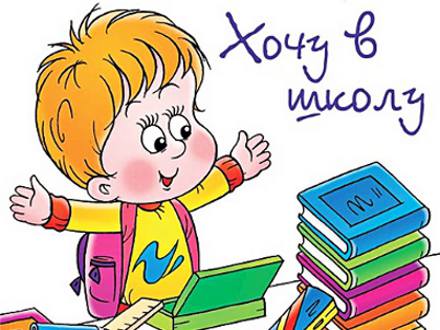 One of the serious problems of pre-school education is the continuity between the kindergarten and elementary school. Traditionally, kindergartens are focused mainly on the overall development of the child, while the elementary school often makes pretty high demands on the quality of preschool education, expecting the first-graders of the skills of the oral account, reading and even letters. In addition, most parents believe that the main thing in the garden is as early as possible to prepare a child to school. It is necessary to understand that it is possible to achieve readiness for school if the conditions for the full development of the child, the enrichment of gaming, artistic, cognitive activity have been created. Training in kindergarten differs from school in content, organizational forms and methods. In school students, we arm the foundations of scientific knowledge. The task of the kindergarten is to give preschoolers as scientifically reliable, but elementary knowledge of the surrounding objects and phenomena. The volume of knowledge and skills that preschoolers are mastered is insignificant compared to the school, but these knowledge and skills are of great importance for the further development of the child. The teaching content in kindergarten includes familiarization with the surrounding objects, with the simplest connections and relationships between them, with the coming reasons of the observed phenomena. The goal is to transfer to children not only knowledge and skills, but also the ways of mastering them.
One of the serious problems of pre-school education is the continuity between the kindergarten and elementary school. Traditionally, kindergartens are focused mainly on the overall development of the child, while the elementary school often makes pretty high demands on the quality of preschool education, expecting the first-graders of the skills of the oral account, reading and even letters. In addition, most parents believe that the main thing in the garden is as early as possible to prepare a child to school. It is necessary to understand that it is possible to achieve readiness for school if the conditions for the full development of the child, the enrichment of gaming, artistic, cognitive activity have been created. Training in kindergarten differs from school in content, organizational forms and methods. In school students, we arm the foundations of scientific knowledge. The task of the kindergarten is to give preschoolers as scientifically reliable, but elementary knowledge of the surrounding objects and phenomena. The volume of knowledge and skills that preschoolers are mastered is insignificant compared to the school, but these knowledge and skills are of great importance for the further development of the child. The teaching content in kindergarten includes familiarization with the surrounding objects, with the simplest connections and relationships between them, with the coming reasons of the observed phenomena. The goal is to transfer to children not only knowledge and skills, but also the ways of mastering them.
Different organizational forms of training in kindergarten and school. The main form of pre-school learning is an occupation, which is different from the school lesson with a duration, structure, level of claims imposed on children. In kindergarten is not given homework, estimates are not set; Checking learned knowledge is carried out during the new message.
Pre-school learning is different and methods. Great place is occupied by visual methods, didactic games and gaming techniques are widely used. The assimilation of the new material occurs mainly in the process of active actions: practical manipulations with objects, a variety of games, drawing, design. However, as in school, training in kindergarten is programmed: for an educator is a complete implementation of the program, learning knowledge and skills by all children. In the learning process, it relies on the same didactic principles.
Training is a bilateral process. It is successful only with active participation in it and the educator, and children. The tutor belongs to the leading role: it not only reports the new material, but also seeks his assimilation, actively affects the cognitive activities of children, leads it.The child acquires knowledge and skills from adults. This makes great requirements for their speech both in content and form. The educator should also have various skills in drawing, designing, singing, rhythmic movements, etc., since the teaching of preschoolers is often used to show.
The result of training is expressed both in the assimilation of knowledge, skills and skills, and in changing the identity of the child, which occurs during training activities.
Educational activities are independent activities of the child, on learning knowledge, skills and skills, ways of action. It proceeds under the guidance of the teacher. The educational activity of the preschooler is characterized by the fact that he understands the task set before him, it is able to choose the necessary paths and means for its implementation, as well as to ensure self-control over the progress of the task and self-test of its work. The main components of educational activities are, thus, the adoption of the task, the choice of ways and means for its implementation and following them, self-control and self-test. Each of these components requires the child relevant skills.So, to take the task, preschoolers should be able to listen and hear the caregiver, watch and see what he shows, follow its instructions in mastering cognitive content, skills, action techniques.In order for the child to be able to select ways and means for doing the goal and could follow them, it is necessary to know the knowledge of possible ways and means, the ability to think over the work plan; Act on it. In the course of work, it must show active mental interest, initiative and organization, to act independently, to achieve certain results in the task.
One of the components of educational activities is self-control, 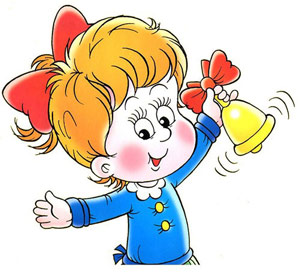 i.e. the ability to compare their actions, statements, judgments with what are trained. Self-control is an important point for development in children attentive to the process itself, the ability to make changes to the method of action. As a result, the child asks questions, asks something to explain to a newly, retell, etc. In the course of work, children begin to control their actions, critically evaluate its results. The appearance of self-control is a significant change in the behavior and consciousness of a child associated with learning. He begins to act independently, relying on the show and explanation, does not resort to the example of a neighbor, sometimes incorrect. Concentration appears, independence: the learning process disciplines.
i.e. the ability to compare their actions, statements, judgments with what are trained. Self-control is an important point for development in children attentive to the process itself, the ability to make changes to the method of action. As a result, the child asks questions, asks something to explain to a newly, retell, etc. In the course of work, children begin to control their actions, critically evaluate its results. The appearance of self-control is a significant change in the behavior and consciousness of a child associated with learning. He begins to act independently, relying on the show and explanation, does not resort to the example of a neighbor, sometimes incorrect. Concentration appears, independence: the learning process disciplines.
Educational activities are formed gradually. The highest level is characterized by the fact that children listen to the instructions of the educator, are actively guided by them in their work, correctly evaluated the made and asked about incomprehensible, reach the necessary results. At this level, children act consciously, do not resort to mechanical imitation. In this case, we can assume that educational activities in preschoolers are mainly formed.


